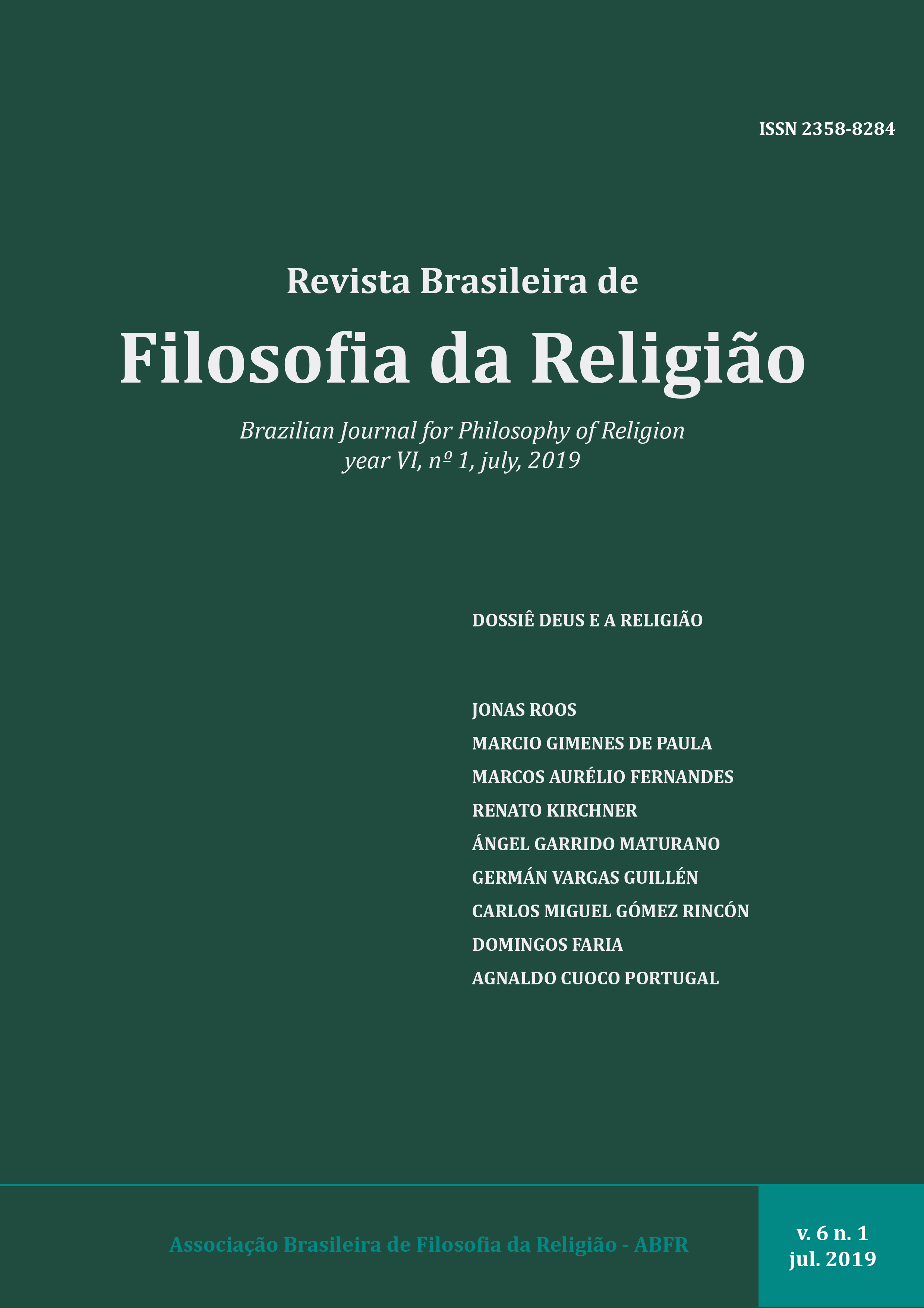FOR A PHENOMENOLOGICAL- HERMENEUTICAL INTERPRETATION OF THE CONFESSIONS OF SAINT AUGUSTIN
DOI:
https://doi.org/10.26512/2358-82842019e28859Keywords:
Confessions; hermeneutic phenomenology; praise; freedom; truth.Abstract
This article intends to propose the path of a phenomenological-hermeneutic interpretation of the Confessions, work written by Saint Augustine. First, it tries to elucidate what is meant by speaking of a phenomenological-hermeneutic interpretation. Then it seeks to capture the hermeneutic dynamics in the work itself and to understand what challenges it poses to an interpretation that harmonizes with this dynamic and thus becomes phenomenological. Thirdly, it tries to think the sense ando the meaning of the work as such and as a whole, starting from its title and trying to capture its intimate intention, that is, its autogenetic principle. The meaning of the title of the work stands out the phenomenon of praise, on and from the horizon of the experience of language. We seek to highlight the autogenetic principle of the work from the phenomenon of the experience of liberation to the truth of God, an experience that occurs in the dynamics of faith and grace.
Downloads
References
AGOSTINHO. Dos bens do matrimônio; a santa virgindade; dos bens da viuvez: cartas a Proba
e a Juliana. São Paulo: Paulus, 2014.
AGOSTINHO. Comentário aos Salmos (Salmos 1-50). São Paulo: Paulus, 1997a.
AGOSTINHO. Comentário aos Salmos (Salmos 51-100). São Paulo: Paulus, 1997b.
AGOSTINHO. Confissões. Petrópolis: Vozes, 1988.
AGOSTINHO. A verdadeira religião. São Paulo: Paulinas, 1987.
ANAXIMANDRO, PARMÊNIDES, HERÁCLITO. Os pensadores originários. Petrópolis:
Vozes, 2017.
AUGUSTINUS. Confessiones / Bekenntnisse. München: Kösel, 1960.
ECKHART, Mestre. Sermões Alemães 1 (sermões 1 a 60). Bragança Paulista / Petrópolis: EDUSF
/ Vozes, 2006.
HEIDEGGER, Martin. Explicações da poesia de Hölderlin. Brasília: UnB, 2013.
HEIDEGGER, Martin. Ser e Tempo. Petrópolis / Bragança Paulista: Vozes / Edusf, 2012.
HEIDEGGER, Martin. Marcas do Caminho. Petrópolis: Vozes, 2008.
HEIDEGGER, Martin. A caminho da linguagem. Petrópolis / Bragança Paulista: Vozes / Edusf,
HEIDEGGER, Martin. Conferências e escritos filosóficos. São Paulo: Nova Cultural, 1999.
HEIDEGGER, Martin. Língua de tradição e língua técnica. Lisboa: Vega, 1995.
LEÃO, Emmanuel Carneiro. Aprendendo a pensar III. Teresópolis: Daimon, 2017.
LEÃO, Emmanuel Carneiro. Filosofia Contemporânea. Teresópolis: Daimon, 2013.
LEÃO, Emmanuel Carneiro. Aprendendo a Pensar II. Teresópolis: Daimon, 2010a.
LEÃO, Emmanuel Carneiro. Filosofia grega: uma introdução. Teresópolis: Daimon, 2010b.
LEÃO, Emmanuel Carneiro. Aprendendo a Pensar I: o pensamento na modernidade e na
religião. Teresópolis: Daimon, 2008.
PUTALLAZ, François-Xavier. “Libertà ”. Em Dizionario Enciclopedico del medioevo, por André
& LEONARDI, Claudio Vauchez, 1043-1044. Roma: Città Nuova, 1998.
RILKE, Rainer Maria. Sonetos a Orfeu - Elegias de Duíno. Petrópolis: Vozes, 1989.
ROMBACH, Heinrich. Der kommende Gott. Freiburg im Breisgau: Rombach Verlag, 1991.
ROMBACH, Heinrich. Strukturontologie: eine phänomenologie der Freiheit. Freibug /
München: Karl Alber, 1988.
ROMBACH, Heinrich. Leben des Geistes: Ein Buch der Bilder zur Fundamentalgeschichte der
Menschheit. Freiburg: Herder, 1977.
ROMBACH, Heinrich. Substanz, System, Struktur II. Freiburg / München: Karl Alber, 1966.
ROSA, João Guimarães. Grande Sertão: Veredas. Rio de Janeiro: Nova Fronteira, 1985.
WELTE, Bernhard. Meister Eckhart: Gedanken zu seinen Gedanken. Freiburg Basel Wien:
Herder, 1992.

